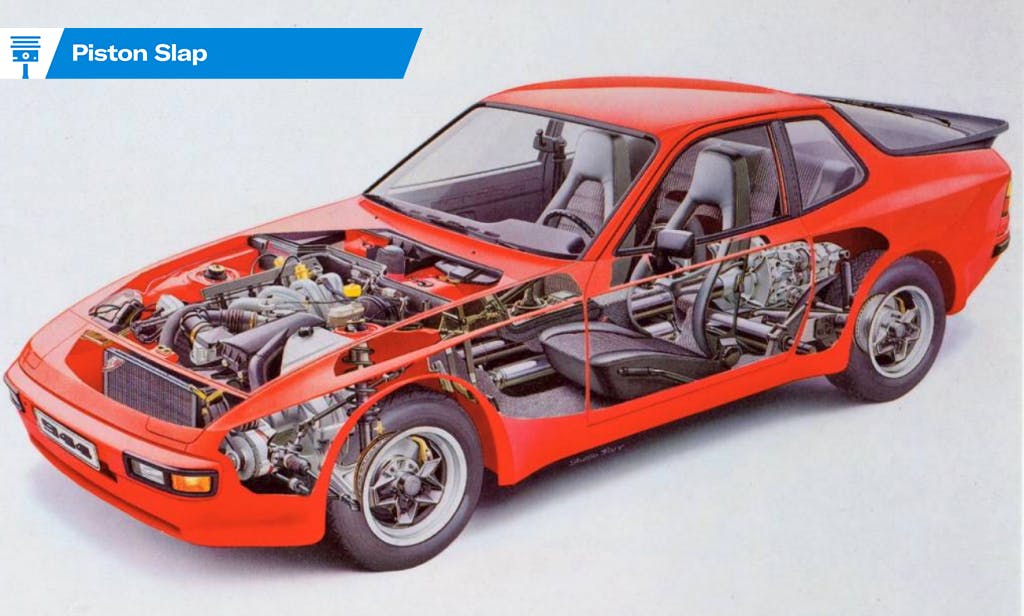Piston Slap: Can a new part kill its old neighbors?

S.L. writes:
I recently spent an awful lot of money on a new clutch for my 1984 Porsche 944. Within 30 days, I came out one morning and my clutch pedal went almost all the way to the floor. I figured it was an adjustment that was made when I had the clutch put in that had loosened and caused the slack in the pedal. I took it in and was told that I had to replace the Clutch Master Cylinder and Slave Cylinder along with the required hoses.
I felt that with this old of a car, after all these years it seemed unusually coincidental that I would have to replace them just after getting a new clutch. Is it so unusual? Or is this a more normal occurrence than I think? The car has only 63K miles, to boot. Just seems awfully early for both to go out, and Porsche is pretty well known for building their cars well.
Sajeev answers:
Hate to say it, but this is a common occurrence when it comes to old cars with old rubber parts: replacing one thing puts undue stress on parts that could be nearing a catastrophic 40th birthday. It’s no coincidence the hydraulic system failed after installing a new clutch; they were already dying a slow death.
A good analogy is when hot rodders install a souped-up engine behind a transmission of unknown health. In this (highly generalized) case, putting the new engine though its paces radically shortens the life of the already threadbare clutches inside the borderline-healthy transmission. Or go do a burnout in a beat up minivan—the extreme effort in a big vehicle with a small, overworked transmission also proves the point.
While an old transmission might not die as quickly as Porsche/VW hydraulic clutch parts, the seals and o-rings in the master/slave cylinders eventually shrink and cause a leak. Add a new pressure plate (presumably installed with the new clutch), and those little rubber bits are truly put to the test. Vehicle mileage is irrelevant; your 944 could have 20,000 miles on the clock and this would still happen. Hydraulic clutches use rubber parts, and rubber goes bad over time.

I’m surprised your mechanic didn’t recommend/insist on replacing and rebuilding the whole system from the beginning. My years in automotive retail taught me this is the best way to set expectations with customers needing non-warranty work on older vehicles. It’s a sad fact that you cannot replace one weathered link in an ancient chain and not expect other problems down the line. And if your mechanic did make such a request, next time trust the fact that 30+ year old cars will fail anywhere and everywhere they possibly can. Doesn’t matter if it’s a Porsche or a Hyundai Excel; nothing ages well if you let enough time pass.
More to the point, one of my buddies in Detroit messaged me about a 1979 Mercedes he wishes to add to his garage. I suggested the vehicle will hoover out his savings at a furious rate, especially if it lacks a comprehensive service history. I’m gonna forward this Piston Slap article to him as proof of my concerns, because that’s what real friends do for their compadres!
Have a question you’d like answered on Piston Slap? Send your queries to pistonslap@hagerty.com, and give us as much detail as possible so we can help! If you need an expedited resolution, make a post on the Hagerty Community.

